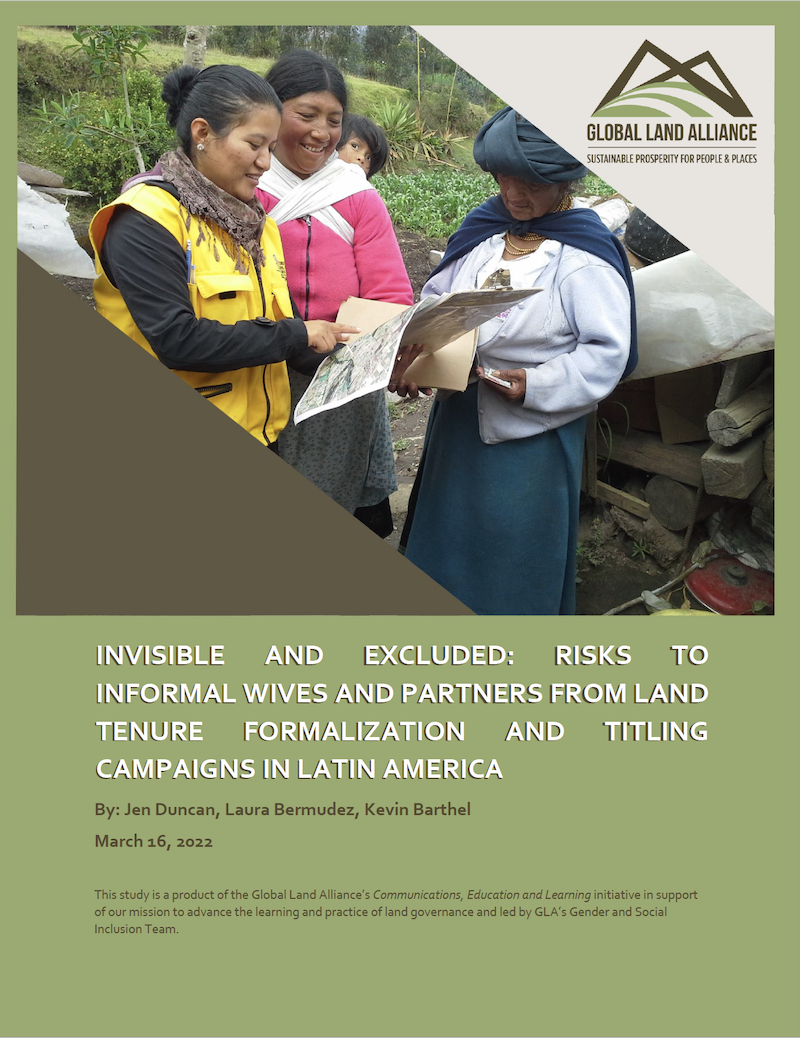Resource information
Latin American countries have pursued rural land titling and registration campaigns over the past several decades with a broad range of social and economic goals. These efforts represent a permanent or long-term legal recognition of rights to land as a primary economic asset for agricultural communities and a source of family subsistence, security, and social and cultural wellbeing. Land rights can provide multi-generational benefits to recipients.
An increasing body of evidence demonstrates gender bias in land rights formalization campaigns, and gender disparity in landholding in Latin America remains acute despite decades of policies, laws, and regulations supporting gender equality. One reason for this disparity appears to be the high prevalence of marriage informality in areas of land rights formalization. Even where laws provide equal land rights to informal spouses, claiming these rights is far from easy in the context of a land rights formalization campaign, where implementers may never even know that an informal spouse exists or has a co-ownership claim to a particular parcel of land. Women themselves often do not know they have rights as informal spouses, and in many cases do not view themselves as “informal spouses” at all, but rather as partners who may not have any spouse-like rights. Women often lack access to justice to make a timely claim if their rights have not been recognized, social norms may discourage informal spouses from making a claim, and data metrics and feedback loops are inadequate to catch problems as they arise during implementation.
This paper is a response to the urgent need project implementers have highlighted in several Latin American countries for further attention to the challenges of marriage informality that results in the exclusion of rural women in land tenure formalization campaigns. Authors present recent evidence from the Dominican Republic and Colombia against a backdrop of regional and global trends, discuss policy implications, and explore practical ideas for mitigating risks to informal wives in land rights formalization campaigns.

